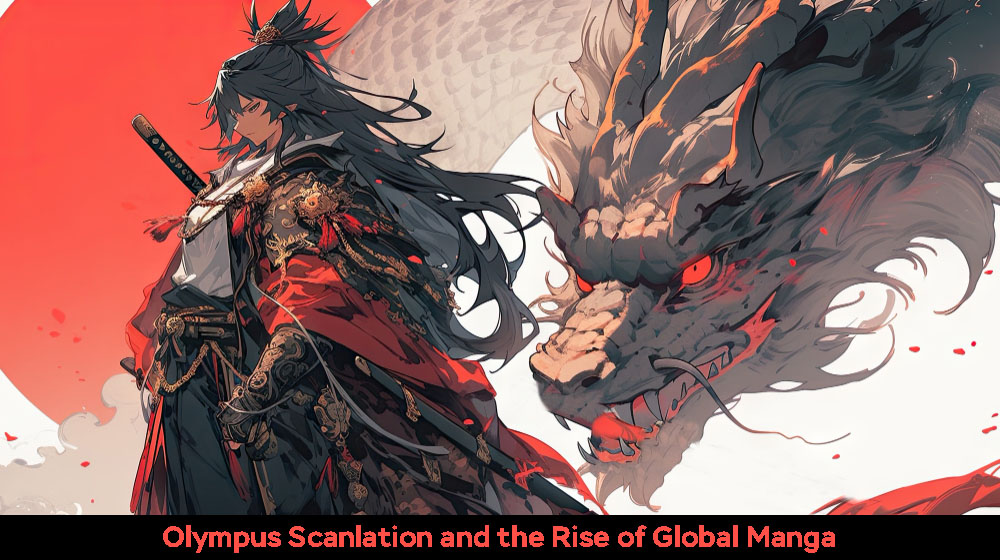Manga has become one of the most powerful cultural exports of the 21st century, reaching readers across the globe. While today’s international manga market is thriving, much of its early growth was driven by dedicated fans who translated titles long before official publishers stepped in. Among these groups, Olympus Scanlation gained recognition for bringing untranslated manga to readers worldwide, opening a new door into Japanese storytelling and shaping how global audiences discovered their favorite series.
What Is Olympus Scanlation?
Olympus Scanlation is a fan-driven project focused on scanning, translating, and editing Japanese manga into English and other languages. The group’s name often appears on manga websites and forums where fans gather to read titles that have not yet been licensed by major publishers. Their work is part of a much larger tradition known as “scanlation,” a blend of the words scan and translation.
The process usually involves:
- Obtaining a physical or digital copy of the manga in Japanese.
- Scanning or cleaning the pages to prepare for translation.
- Translating dialogue, sound effects, and cultural notes.
- Typesetting the translated text into speech bubbles and panels.
For readers outside Japan, this makes previously inaccessible stories available with relative speed. Olympus Scanlation became popular because it worked on series that often took years to be officially translated or sometimes never reached international markets at all.
The Origins of Scanlation Culture
To understand Olympus Scanlation’s place in history, it is important to look at the rise of fan translation as a whole. In the 1990s and early 2000s, manga was still a niche interest outside Japan. Publishers in North America, Europe, and Asia released only a small selection of titles. Dedicated fans who wanted more variety turned to do-it-yourself translations.
The early scanlation community operated like underground networks. Fans gathered in IRC chatrooms, niche forums, and fan sites, where new chapters were shared via file-hosting platforms. While many early groups worked quietly, Olympus Scanlation emerged during a time when scanlation was already beginning to build global communities of readers.
Olympus Scanlation and Its Unique Approach

Olympus Scanlation gained recognition not only for its speed but also for the quality of its translations and editing. Many fan translation groups struggled to balance accuracy with readability, but Olympus often emphasized clean typesetting, polished English, and cultural notes that helped readers understand Japanese references.
Their reputation grew because they focused on genres that appealed to international readers—shōnen (action), shōjo (romance), and even niche seinen (mature audience) titles. This allowed fans across different backgrounds to find stories that resonated with them.
The Role of Technology in Olympus Scanlation’s Growth
The rise of high-speed internet, affordable scanners, and improved editing software changed the scanlation world forever. Olympus Scanlation used these tools to produce translations faster and with higher quality. Communities on platforms like MangaDex, Batoto (now defunct), and Reddit manga forums helped spread Olympus releases to wider audiences.
Cloud storage, torrent networks, and social media accelerated the process, making Olympus Scanlation’s work instantly accessible to readers worldwide. This speed gave fans something that official publishers often could not: immediate access to the latest chapters shortly after release in Japan.
Why Fans Turned to Olympus Scanlation
There are several reasons why Olympus Scanlation became so widely read among manga fans:
- Access to Unlicensed Manga – Many titles Olympus worked on were not available outside Japan.
- Faster Releases – Official translations sometimes took months or even years, while Olympus could release within days.
- Community Engagement – Olympus built a reputation in fan communities, often interacting with readers and listening to feedback.
- Diversity of Genres – They took on projects across romance, fantasy, action, and slice-of-life, appealing to different tastes.
For many readers, Olympus Scanlation was their first introduction to manga outside of the most popular series like Naruto, Bleach, or One Piece.
The Controversy Around Scanlation
While Olympus Scanlation gained fans, the broader scanlation community has also faced criticism and controversy. Publishers argue that scanlations are a form of piracy, taking revenue away from creators and companies who invest in official translations.
Olympus and similar groups countered that they filled a gap left by publishers. Many titles they worked on were not available legally, meaning there was no competing product. In fact, some argue that scanlations actually helped publishers discover demand for certain titles. Series like Attack on Titan and One Punch Man had strong scanlation followings before being officially localized, proving to companies that international readers wanted them.
Olympus Scanlation and the Rise of Global Manga
It is impossible to discuss the globalization of manga without acknowledging the role of scanlation groups like Olympus. While publishers eventually caught up with international demand, scanlations built early momentum. Fans in countries as far apart as Brazil, France, Pakistan, and the United States were reading Olympus translations long before official copies reached local shelves.
This democratized access to manga shaped global fandom. It allowed readers to participate in discussions, memes, and theories at the same time as Japanese readers. Olympus Scanlation, along with other groups, made manga a real-time global experience.
Cultural Impact of Olympus Scanlation
Olympus Scanlation didn’t just translate words—it translated culture. Japanese honorifics, puns, and idioms often lose meaning when stripped away in official translations. Olympus tended to include notes, small footers, or glossary entries that helped fans understand these cultural elements. This not only gave readers the story but also offered a window into Japanese society and traditions.
Many readers who discovered manga through Olympus Scanlation went on to learn Japanese themselves. Universities in the West reported rising enrollments in Japanese language courses during the 2000s and 2010s, partly fueled by anime and manga fandoms.
Olympus Scanlation and Community Bonds
Another unique aspect of Olympus Scanlation was its tight-knit community. Unlike faceless corporations, Olympus often interacted directly with fans. Forum threads would include thank-yous, discussions about translation choices, and debates over cultural references. Readers felt part of something bigger than just consuming media, they were contributing to a shared passion.
This sense of community is what kept Olympus Scanlation alive even as the legal environment around fan translations grew stricter. It was not just about reading manga; it was about being part of a global cultural exchange.
The Future of Olympus Scanlation
Today, manga publishers have caught up with global demand. Platforms like Shonen Jump’s Manga Plus, Comixology, and Crunchyroll Manga offer same day official releases in English and other languages. Yet, groups like Olympus Scanlation continue to exist, often focusing on niche titles that remain overlooked by mainstream publishers.
The future of Olympus Scanlation may shift toward even more specialized content, where they bring rare or experimental manga to international readers. Their role is no longer about competing with big publishers but about preserving diversity and giving a platform to stories that might otherwise vanish in obscurity.
Ethical Questions: Should Readers Support Scanlations?
This brings us to an important question—should readers support Olympus Scanlation or stick to official releases? There is no simple answer. On one hand, supporting official manga ensures that creators and publishers are paid for their work, sustaining the industry. On the other hand, Olympus Scanlation has historically given fans access to stories that might never be available legally.
Many fans adopt a middle path: reading Olympus translations to discover new series, then purchasing official volumes once they are available. In this way, scanlations act as a gateway, not a replacement.
Olympus Scanlation’s Lasting Legacy
Regardless of where one stands on the ethical debate, Olympus Scanlation has undeniably shaped manga culture. It introduced countless readers to series that became lifelong favorites. It fostered cross-cultural understanding and global fan communities. And it played a crucial role in the rise of manga as a worldwide phenomenon.
Olympus Scanlation represents both the passion of fans and the power of grassroots efforts in spreading culture beyond borders.
Conclusion
The rise of manga into a global cultural force owes much to fan translation groups like Olympus Scanlation. They bridged language barriers, connected communities, and expanded access to Japanese storytelling. While official publishers now dominate the market, Olympus remains a symbol of fan passion and the enduring power of grassroots efforts in shaping global culture.
The story of Olympus Scanlation is not just about manga—it is about the way people everywhere seek stories, share them, and keep them alive. As manga continues to rise, Olympus Scanlation’s legacy will remain etched in the history of global fandom.
FAQs About Olympus Scanlation
1. What is Olympus Scanlation?
Olympus Scanlation is a fan group that translates Japanese manga into English and other languages, making them accessible to global readers.
2. Is Olympus Scanlation legal?
Technically, scanlations are unauthorized and exist in a gray area. However, many readers turn to them for titles that are not available officially.
3. How did Olympus Scanlation start?
It emerged during the rise of online fan communities in the early 2000s, gaining popularity through clean translations and community interaction.
4. Why is Olympus Scanlation important?
It introduced countless readers to manga, helping fuel the worldwide popularity of Japanese comics.
5. Does Olympus Scanlation still exist today?
Yes, though the landscape has changed with official publishers offering faster translations. Olympus focuses on niche and unlicensed titles.
For More Information Visit Creative News


